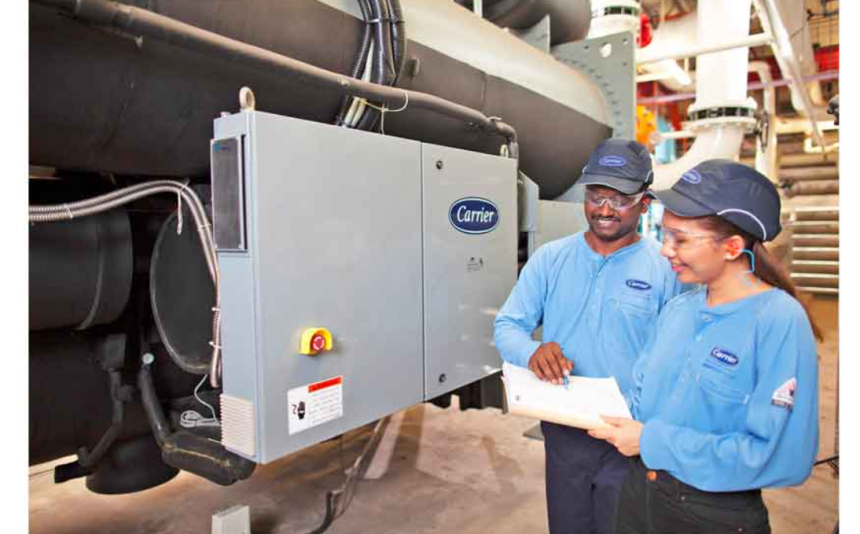The field of heating, ventilation and air conditioning (HVAC) has undergone many changes over the years. Evolving technology presents both challenges and opportunities for the industry. The first step toward understanding the technological advances in the field involves proper HVAC training.
The Introduction of Smart Technology
Smart technology has revolutionized the way people use HVAC systems. It has enhanced user experience and improved the energy efficiency of these systems. Programmable thermostats and smart HVAC systems have altered how HVAC systems operate. These advanced systems have sensors that monitor various conditions, such as indoor and outdoor temperatures, humidity levels, and occupancy. Based on collected data, they regulate temperatures to maintain optimal comfort.
Moreover, smart HVAC systems can identify potential issues and alert homeowners and business owners. This feature can be a game changer, allowing for proactive maintenance and reducing the likelihood of costly repairs. Smart HVAC systems can also help extend equipment life and improve system reliability. Thanks to smart technology, HVAC systems are now more efficient, reliable and user-friendly.
The Impact of the Internet of Things (IoT)
The Internet of Things (IoT) has dramatically influenced the HVAC industry. IoT technology connects HVAC systems with other smart devices and systems, creating an interconnected environment that can adapt to the user’s needs. These advanced HVAC systems can predict weather changes and automatically adjust temperatures for optimal comfort. They can also learn from the owner’s behavior and preferences, automatically adjusting to suit individual needs.
Beyond the obvious benefits of comfort and convenience, IoT technology plays a significant role in promoting sustainability and energy conservation. IoT-enabled HVAC systems can detect when a home or business is empty and adjust energy consumption accordingly, thereby conserving energy and reducing utility bills. In the era of IoT, HVAC systems are not just functional appliances, they are an integral part of a smart, energy-efficient home or business.
Artificial Intelligence and Machine Learning
Another technological trend reshaping the HVAC industry is the use of artificial intelligence (AI) and machine learning. These technologies enable HVAC systems to learn from past performance, understand patterns and make predictions, which can help optimize performance and energy efficiency. Furthermore, AI and machine learning could be used preemptively to help predict when a system might require maintenance.
The Future of HVAC
Universal Technical Institute (UTI) students are trained to diagnose, repair and install HVAC residential and commercial systems.1 UTI understands the importance of training to keep up with technology advancements. HVAC professionals need to remain up to date on current technology.
Emerging Opportunities and the Road Ahead
Advancements in HVAC technology are creating opportunities for those in the industry. As the world becomes more conscious of its energy consumption and the environmental impact, the demand for efficient, smart HVAC systems is set to increase. Professionals with the right training and knowledge of these advanced systems will be in demand, paving the way for a future in the HVAC industry.2
Smart technology, IoT, AI and machine learning have significantly influenced the HVAC industry. These advancements have helped to improve energy efficiency, provide cost savings, and enhance user experience. The future of HVAC lies in embracing these technological advancements and leveraging them for better performance and sustainability.
Disclaimers:
1Program coming to UTI.
2UTI is an educational institution and cannot guarantee employment or salary. For program outcome information and other disclosures, visit www.uti.edu/disclosures.















